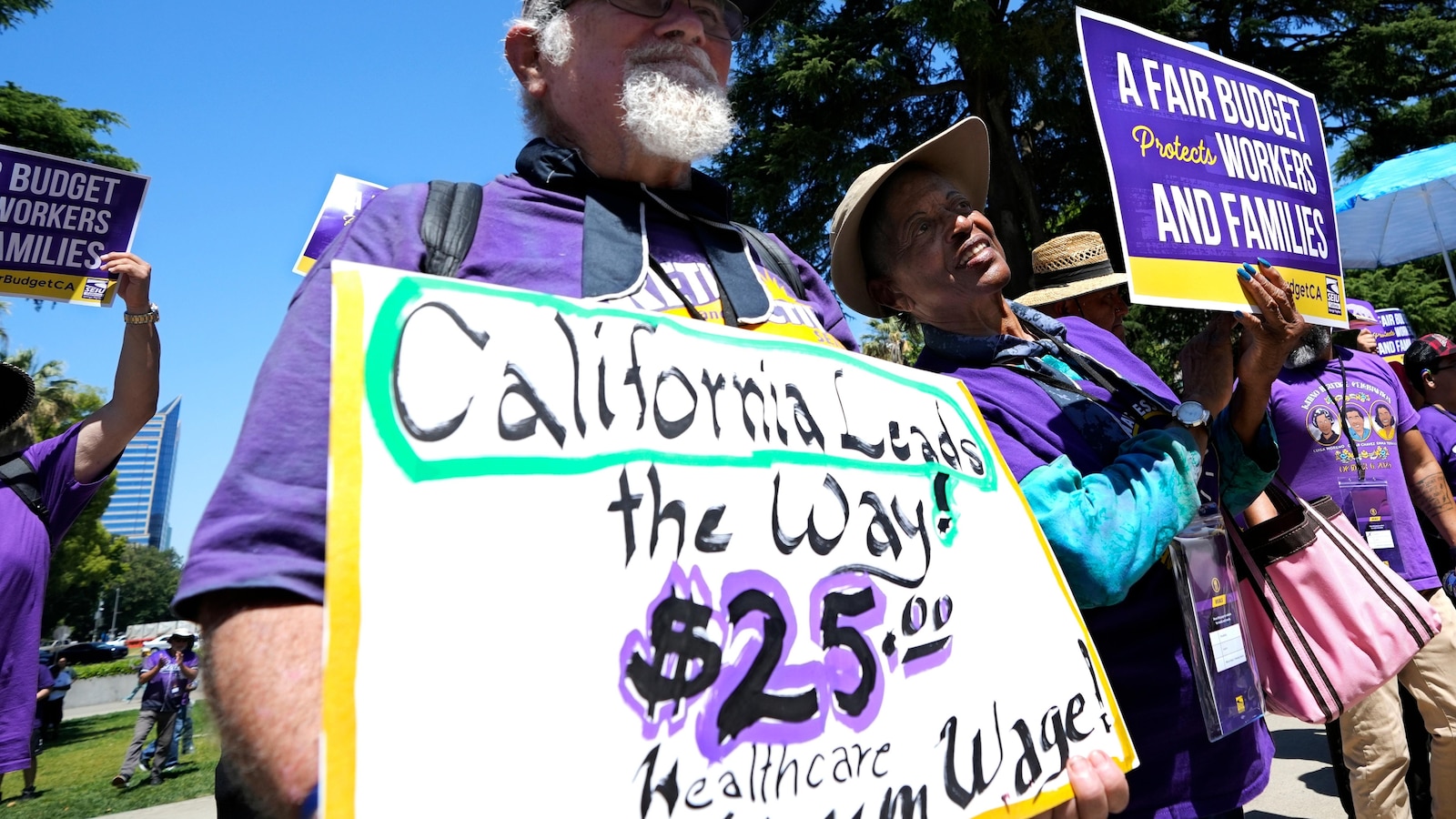[ad_1]
SACRAMENTO, Calif. — Some of the lowest-paid health care workers in California will get a pay bump Wednesday under a state law gradually increasing their wages to at least $25 an hour.
Workers at rural, independent health care facilities will start making a minimum of $18 an hour, while others at hospitals with at least 10,000 full-time employees will begin getting paid at least $23 an hour this week. The law will increase workers’ pay over the next decade, with the $25 hourly rate kicking in sooner for some than others.
About 350,000 workers will have to be paid more under the law starting Wednesday, according to the University of California, Berkeley Labor Center.
Democratic Gov. Gavin Newsom signed the law last year, and workers were slated to get raises in June. Lawmakers and the governor agreed this year to delay the law to help close an estimated $46.8 billion budget shortfall.
Carmela Coyle, president and CEO of the California Hospital Association, said last year that the legislation will support workers and protect access to health care services.
“SB 525 strikes the right balance between significantly improving wages while protecting jobs and safeguarding care at community hospitals throughout the state,” she said in a statement.
California’s minimum wage for most workers in the state is $16 an hour. Voters will decide in November whether to increase the rate gradually to $18 an hour by 2026, which would be the highest statewide minimum wage in the U.S. Fast food workers in California now have to be paid at least $20 hourly under a law Newsom signed last year.
Some health care providers raised concerns when the law was passed last year that it would pose a financial burden on hospitals as they tried to recover from the COVID-19 pandemic. The law could lead providers to cut hours and jobs, critics said.
Many hospitals in the state have already begun implementing wage increases under the law’s original timeline, said Sarah Bridge, vice president of advocacy and strategy with the Association of California Healthcare Districts.
“It obviously does create financial pressures that weren’t there before,” Bridge said of the law. “But our members are all poised and ready to enact the change.”
___
Austin is a corps member for the Associated Press/Report for America Statehouse News Initiative. Report for America is a nonprofit national service program that places journalists in local newsrooms to report on undercovered issues. Follow Austin on Twitter: @ sophieadanna



